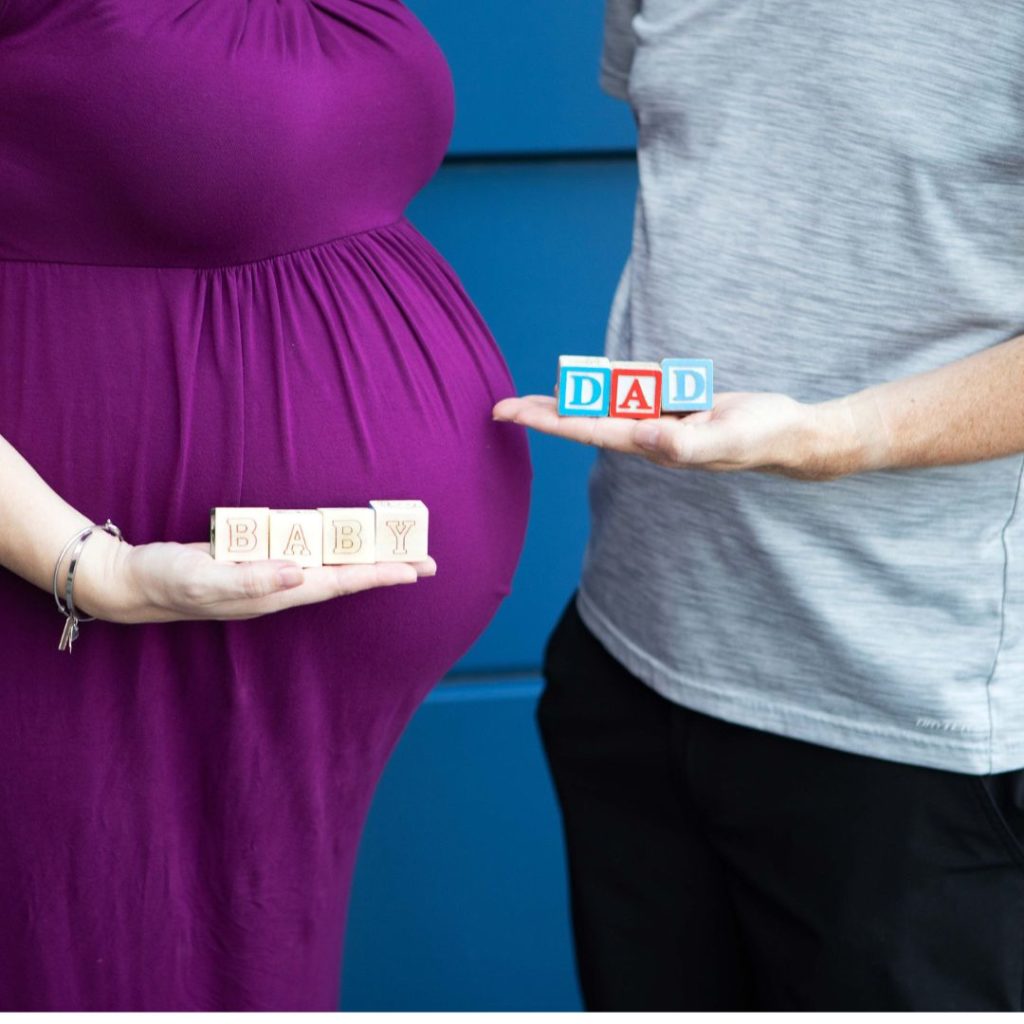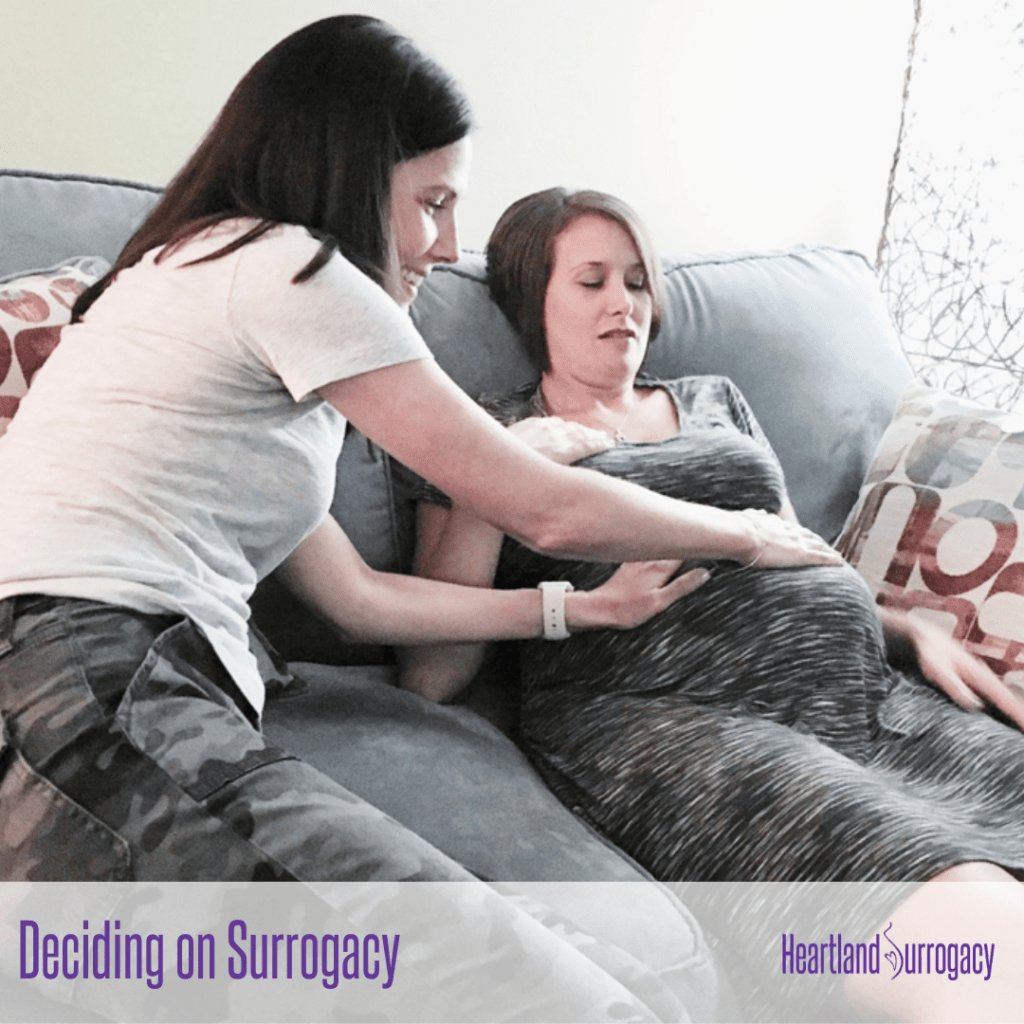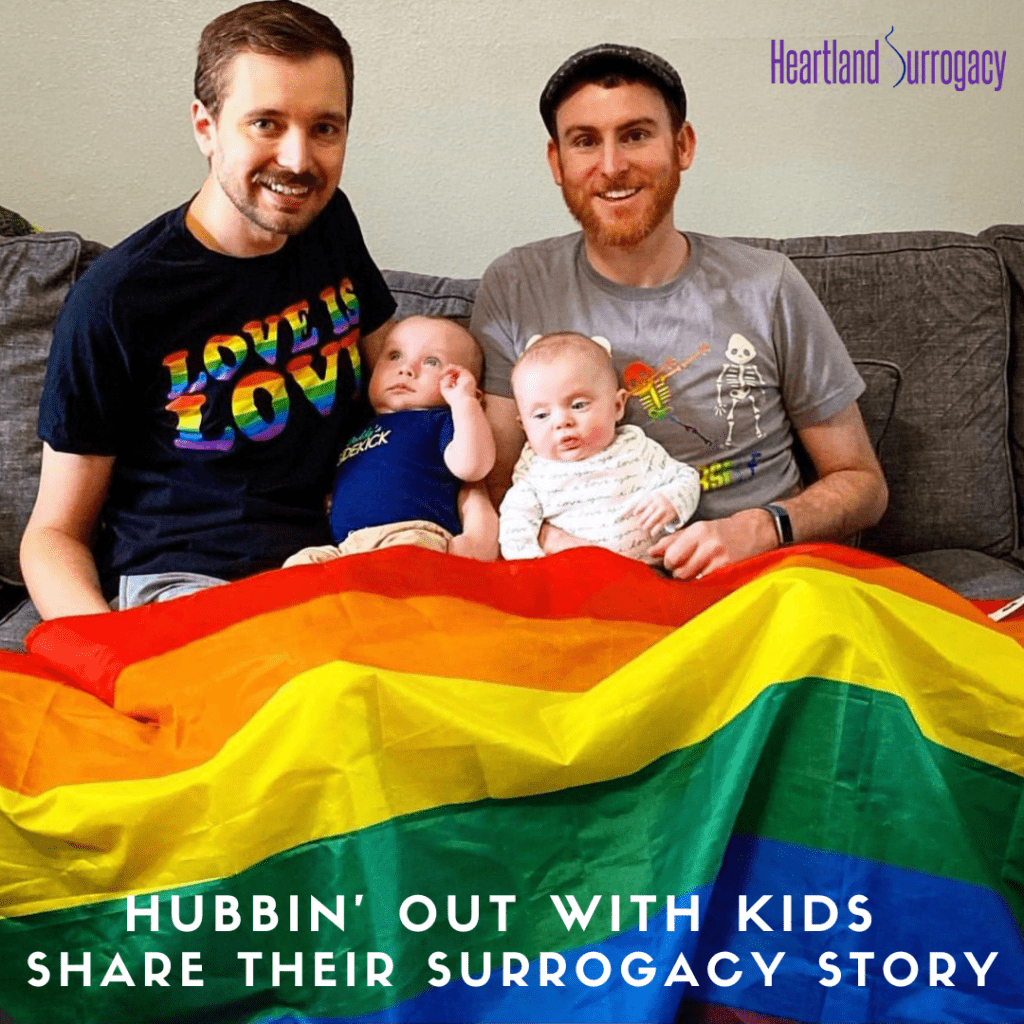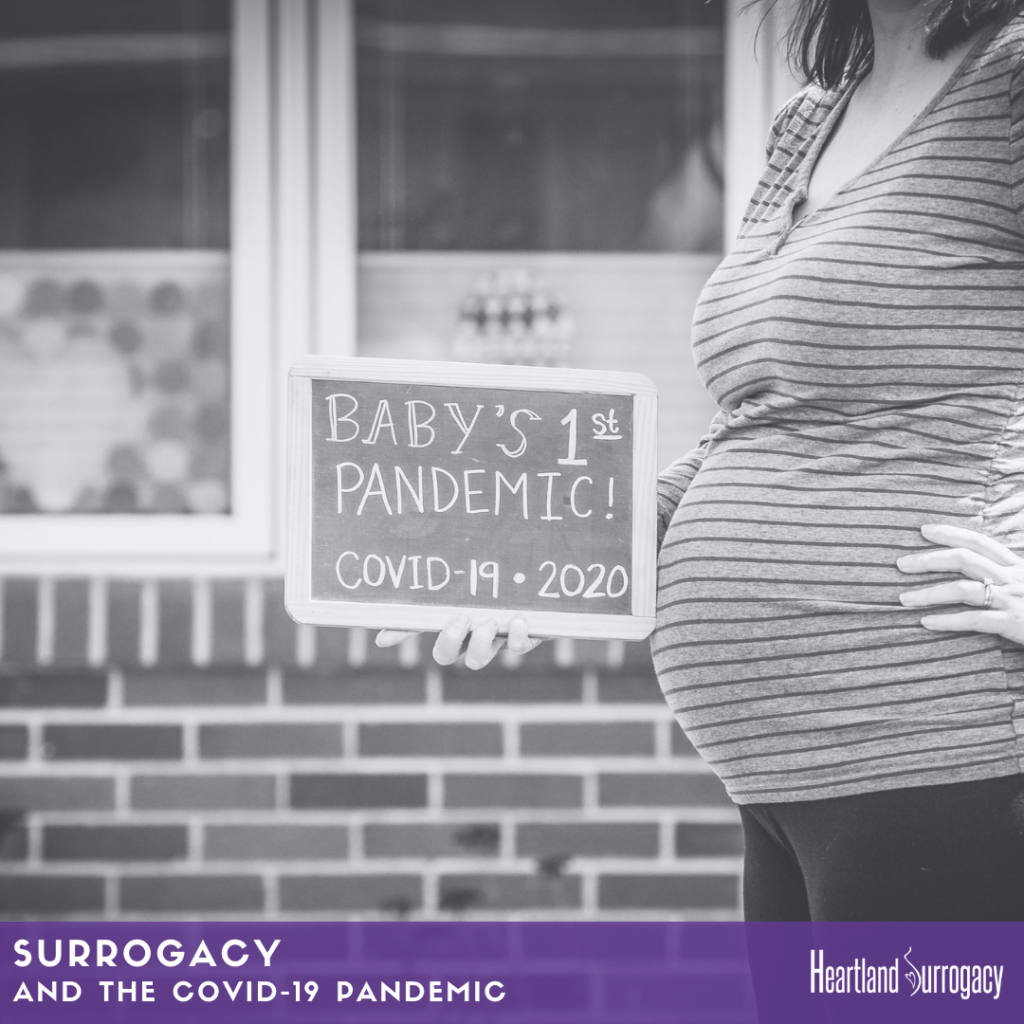Surrogacy Stories is a blog series compiled by Heartland Surrogacy. In this series, we will bring you personal perspectives on surrogacy from a variety of people: surrogates, intended parents, and the professionals who have been lucky enough to work with them. In this heartfelt story, Surrogate Kerri shares her experience with failed embryo transfers.

In an ideal world, surrogacy would be a direct path to parenthood for our intended parents. However, surrogacy journeys are complex and can unfortunately have setbacks. We support any good luck charms our matches try out for a successful embryo transfer (pineapple, French fries, lucky transfer socks, etc.) but sometimes the stars don’t align and a transfer fails. Below, Surrogate Kerri shares her story of overcoming failed embryo transfers and getting to a healthy pregnancy.
The circumstances surrounding Kerri’s transfers that did not lead to a baby.
Surrogate Kerri was matched with intended parents in early 2017 and underwent her first embryo transfer in March of 2017. After transferring two embryos, she had two days of bedrest before flying home. Shortly after arriving home, she became ill, and eventually ended up in the ER for fluids. While there, a hCG beta test was performed, which showed that Kerri was pregnant. Unfortunately, when she went for her scheduled blood draw at 10 days past transfer, the results were negative.
A second transfer occurred the next month, but also resulted in negative results. At this point, her intended parents decided to work with a different specialist to pursue a pregnancy on their own again.
Kerri was re-matched and underwent her first embryo transfer with her new intended fathers in December of 2017. Two embryos were transferred and she had two days of bed rest before traveling home. Her first hCG beta at 10 days post transfer showed that Kerri was pregnant. The follow up beta tests showed that her numbers were rising properly, but an ultrasound at 7 weeks showed a blighted ovum.
Finally, in April 2018, after Kerri’s second transfer with her IFs, she had a successful transfer. As we write this, she is entering her 3rd trimester with a healthy baby boy!
What do you remember feeling?
The first failed transfer was the hardest, because I physically felt really horrible, but I was hoping that some of it was pregnancy related. I always got sick with my keepers early on in pregnancies, so I was hoping this was the same thing. The positive hCG test when I was in the ER also made it hard to get the negative result later on.
I got pregnant with my own kids quickly. There were never any miscarriages or anything. The failed transfer was definitely difficult, because I’d never gone through that before. Even though it wasn’t my baby, it was a lot of emotion to take in. The intended mother and I talked a lot; she had gone through a lot of her own miscarriages and she was trying to keep my spirits up. It helped to talk to someone who had been through it before.
The second was more disappointment. It was heartbreaking. Doubts run through your head and you wonder if you could have done something differently. Was it my fault? The embryos’? What could have gone differently?
The third failed transfer was the hardest, because we did have positive betas. We got all the way up to 7 weeks, which was the furthest I’d made it. The ultrasound showed a sac, so a baby had implanted, it just didn’t keep growing. It felt more like a miscarriage. I wondered what I could have done better? What could have been different? It was very emotional, and this time it was with two dads, so they had never been through the miscarriage process. Everything was new to them and I had to explain things to them. It was a different experience and it took me a while to feel normal or like myself again.
What did the process look like, physically?
The first two times, I stopped the meds and just waited to be able to cycle again. The third time it took six weeks for my hCG levels to go to zero – it actually went up before it started dropping. I waited and had a natural miscarriage. I had gained about 10 pounds from transfer to transfer because of the meds and I just didn’t feel right. After the failed transfer, I didn’t always feel like exercising as I was dealing with the grief and cramping that came with the miscarriage. The physical symptoms really made the emotions really hit.
Who supported you through these experiences?
The first two times, the intended mother was a great support. We really leaned on each other. My best friend went to one of the transfers with me. She had never been pregnant, but saw a lot of the process and was kept in loop through a lot of it. And, of course, my husband. He didn’t really understand, but he was here for me and helped out more with cooking and childcare when I wasn’t feeling up to it.
I also joined groups on Facebook – general surrogacy support groups, transfer groups, and one specifically for failed transfers. It really helped to be able to talk to other people who were going through exactly what I’d gone through.
The care package and cards from Heartland Surrogacy were unexpected but helpful. It was good to know that the agency knew what was going on and was thinking about me. It was more reassurance that I wasn’t in this alone.
What did you find helpful for closure?
Talking to the intended mother helped with knowing it wasn’t my fault and there was nothing I could have done differently. The third time, the physical changes – the process of going through the miscarriage – actually helped me get some closure as well.
Is there any advice you can give to surrogates dealing with the same issue?
Support groups are very helpful. Really just support in general. Don’t shut people out. Let them help. You don’t have to take it all on yourself. There are lots of people who have gone through something similar before. Know that it can still work.
How has your relationship with your IPs been?
As a surrogate, you can’t see the loss from the IPs’ perspective. We’re feeling emotions and physically dealing with it, but it’s a loss for them as well and we don’t necessarily understand their feelings. I wanted to stay in touch and know how the IPs were doing to help keep the bond. It helped me to know how my IPs were doing because it helped remind me that 1) the baby wasn’t mine and 2) they’re going through it emotionally too.
After my third failed transfer, one of the dads said, “We’re all in this together. We all have different roles and feel different things, but we’re in it together.”
Looking back, what kind of resources would have been helpful?
I wish I would have known about the support groups earlier. Talking to my IM was helpful, but it’s a different experience for a surrogate and she was also dealing with a loss. It would have been more beneficial to talk to other surrogates who were also dealing with a first-time loss.




